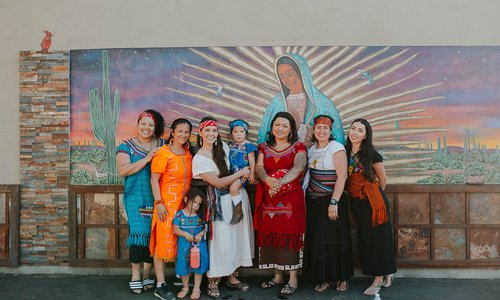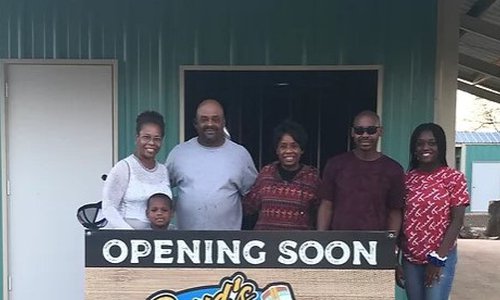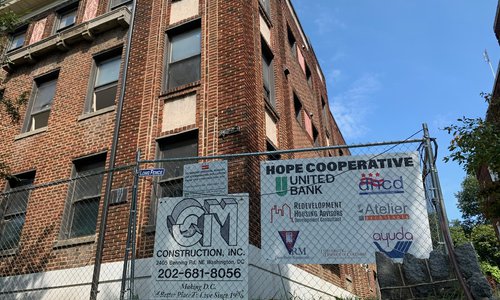LISC-NPQ Series: Community Strategies for Systems Change

LISC-NPQ Series: Centering Food Justice + Indigenous Maternal Knowledge
Our series with NonProfit Quarterly, Community Strategies for Systemic Change, concludes with an essay by the founding directors of the Cihuapactli Collective, a Phoenix-based organizations that offers healing services to urban Indigenous people "from womb to tomb." Nurturing the inextricable links between Native food sovereignty and mothering practices, they argue, supports community, land and spirit, and paves a path to equity and wellbeing. All photos courtsey of Cihuapactli Collective.

LISC-NPQ Series: Changing the Health System: A Community-Led Approach Rises in Rhode Island
Ana Novais, acting secretary of Rhode Island’s Executive Office of Health and Human Services, describes how neighborhood-rooted Health Equity Zones are tackling gaps in wellbeing and life expectancy that plague communities of color and people living on low incomes. Listening to people’s stories, she explains in this essay for the LISC-NPQ series Community Strategies for Systemic Change, is a key to the success of these transformative health collaboratives.

LISC-NPQ Series: Organizing a Community Around Food Sovereignty
Ashley Gurvitz, CEO of LISC partner United Northeast Community Development Corporation in Indianapolis, describes how neighbors are devising and carrying out strategies to bring healthy, affordable food and independent distribution systems to an area that corporate grocery chains have ignored and abandoned.

LISC-NPQ Series: Overcoming Financial Trauma in Rural America
In the fourth installment of the LISC-NPQ series, “Community Strategies for Systemic Change,” LISC partner and Rubinger Fellow Joseph Ceasar explains the high cost of financial PTSD on rural communities of color, as in Lufkin, Texas, where he runs the Legacy Institute for Financial Education. Among a range of intensive strategies Ceasar stands behind is “a trauma informed approach rooted in listening to people’s stories and helping them address challenges arising from personal and family history.” Along with budgeting, lending and technical assistance, this approach can help people can break deeply embedded patterns and step onto the path to building financial stability and generational wealth.

LISC-NPQ Series: Tenants’ Rights and the Push for Housing Justice in D.C.
The Tenants Option for Purchase Act is a powerful policy tool in the city of Washington D.C. that can help prevent real estate speculation and displacement. But leveraging it is complicated, writes Elin Zurbrigg, deputy director of LISC-partner Mi Casa, Inc. and an expert on TOPA and helping mobilize residents to wield it. The lessons from D.C., she argues, can provide an important blueprint for other parts of the country where tenants are fighting to upend the forces of gentrification. Zurbrigg’s article continues our essay series with Nonprofit Quarterly, “Community Strategies for Systems Change.”

LISC-NPQ Series: Why Access to Education Is Key to Dismantling Mass Incarceration
In the second essay from the LISC and Nonprofit Quarterly series “Community Strategies for Systems Change,” Syrita Steib, a 2020 LISC Rubinger fellow and founder of Operation Restoration in New Orleans, describes how access to education in prison and after is a crucial tool in the long-haul work of prison abolition. At Operation Restoration, led by formerly incarcerated women, transformation is achieved through multiple avenues in its policy and programmatic work. As Steib notes in the piece, “it’s clear to me that education inside prison changes the prison’s culture and environment and, therefore, can be a powerful tool for change.”

“Community Strategies for Systems Change”: Andre Perry Kicks Off LISC-NPQ Series
Author and Brookings Senior Fellow Andre Perry, who has collaborated with LISC on the work to upend racially biased real estate appraisals, inaugurates a seven-essay series from LISC and NPQ, “Community Strategies for Systems Change.” Perry's article dissects how progressive grassroots action can lead to critical policy change and, pointing to the upcoming series, authored by LISC's local partners, notes that it's in “community stories such as these that you will find the fundamental building blocks of systemic change.”